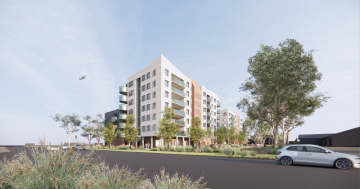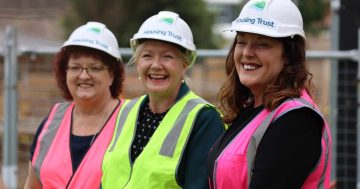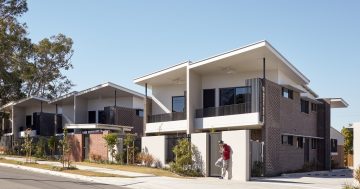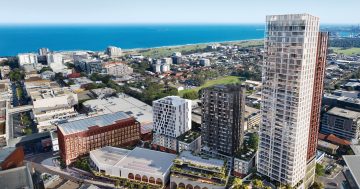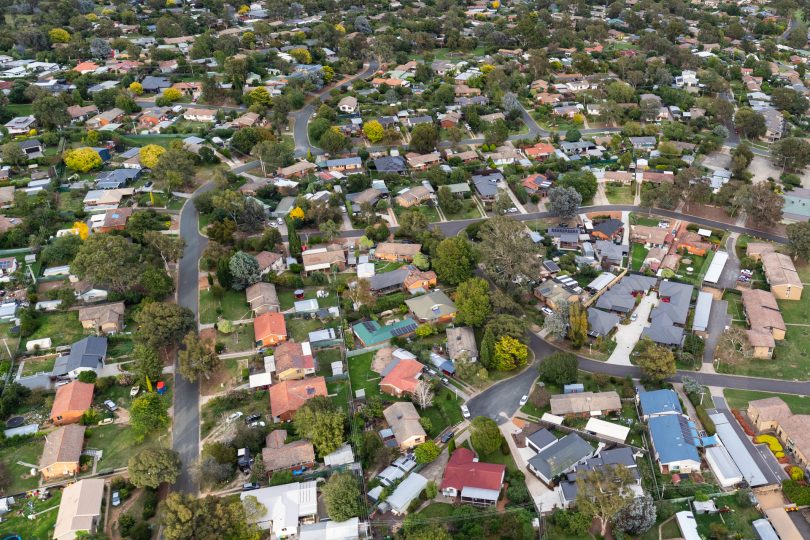
The first round of building project grants of the Housing Australia Future Fund have been approved. Photo: Michelle Kroll.
The first round of Labor’s Housing Australia Future Fund has kicked in, with approved building projects aimed at delivering more than 13,700 new social and affordable homes across Australia.
However, the federal government’s Help To Buy bill, which is its shared equity housing scheme, looks set to be defeated in the Senate, where it has been introduced this week.
The government announced on Monday (16 September) that it had approved grants for the construction of thousands of new homes, the first of its $10 billion social housing scheme set up last year.
First-round grants have approved 185 housing projects, distributed through the HAFF, to build about 13,742 homes and place the scheme well ahead of reaching the fund’s target to build 40,000 new houses over five years.
The breakdown of the first round projects will see 4220 social homes and 9522 affordable homes built.
These will include 1267 homes for women and children escaping domestic violence, as well as older women at risk of homelessness.
Anthony Albanese said the first round of these programs will directly support more social and affordable housing than the Coalition did in their entire nine years in office.
“I grew up in social housing. I know how important a roof over your head is and the opportunities it creates,” the Prime Minister said.
“The first round of funding under our Housing Australia Future Fund will deliver thousands of social and affordable homes across Australia for those that need it most.”
Of the 185 projects for which Housing Australia has recommended contract negotiations, construction on almost 40 per cent of the 13,742 dwellings is forecast to get underway this financial year.
Round one of the program’s funding will unlock $9.2 billion of investment in social and affordable housing across Commonwealth, state and territory governments and the private and community housing sectors.
Housing Minister Clare O’Neil said the programs will provide an ongoing funding stream to build 40,000 social and affordable housing projects, with applications for round two opening in the next six months.
“The Commonwealth Government is back in the game of delivering social and affordable houses at scale, working with all levels of government and the community housing sector to deliver the biggest investment in social housing in over a decade,” Ms O’Neil said.
“It shows the Coalition’s utter disregard for housing that in just the first round of this program, Labor is supporting more social and affordable homes than the Coalition did in their entire nine years in office.
“We want to reduce the stress of housing for Australians – the long waits on housing lists, the long queues for rentals, the out-of-reach deposit for first home buyers – we’ll reduce these issues if we build more houses, and that’s what these projects do.
“We’re building homes for renters, homes for first-home buyers, and homes for women and children escaping domestic violence and those at risk from homelessness because more homes mean more affordable housing for everyone.”
The Help to Buy bill that was approved in the House of Representatives in February, however, is hitting a roadblock in the Senate.
The scheme allows for the government to co-purchase houses with first homebuyers – up to 40,000 of them.
While Labor’s federal scheme is modelled on similar ones in some states and territories and international examples, the Federal Opposition is opposed to the idea.
The government had the numbers to get the bill through the Lower House but will be reliant on Greens and some independents in the Senate to get it passed.
The Greens, however, are not playing ball; instead, they are saying the scheme would drive housing prices up.
The crossbench party has agreed to negotiate with the government in return for action on housing sticking points such as negative gearing reform and coordinated rent caps.
But Greens housing spokesperson Max Chandler-Mather says the government isn’t willing to negotiate in good faith.
“Labor has offered absolutely nothing,” he said.
The government has all but conceded the bill will be lost in the Senate and has begun using terminology in reference to the Coalition and the Greens “blocking’ it.
Original Article published by Chris Johnson on Riotact.





